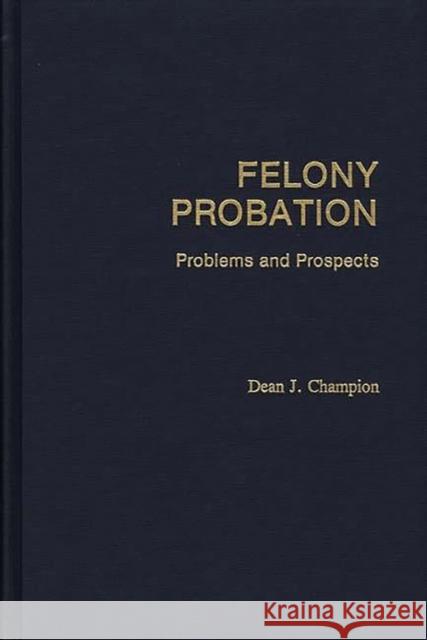Felony Probation: Problems and Prospects » książka
Felony Probation: Problems and Prospects
ISBN-13: 9780275929930 / Angielski / Twarda / 1988 / 185 str.
A distinguished scholar has responded to generic issues of probation's function during a period of growing emphasis on punishment and incarceration for criminal behavior. Primary concern is with present criminal justice perspectives on felons that affect probation activities. This thoughtful book reviews the literature, particularly Petersilia and Rand Corporation research, and poses critical correctional questions. . . . Sensitive to current conceptual ambiguity, Champion carefully defines key terms consistently used to develop perspectives on offenders' dispositions. Although the discussions may be too brief for some readers, the final chapter does focus attention on major issues, states fundamental problems, and provides a forward-looking vision for probation. The book has excellent organization. The bibliography offers a comprehensive listing of essential sources. "Choice"
Felony probation as a solution to severe prison crowding is a moral, ethical, and legal problem, but as Champion notes, almost no alternatives exist. This volume assesses the pros and cons of the growing use of felony probation as a rehabilitative tool and as a functional alternative to alleviate prison overcrowding, and examines the models that provide a framework for understanding this pervasive problem. This comprehensive text will aid law enforcement officials, probation and parole officers, social workers, and teachers of probation-parole corrections courses. Champion's discussion begins with a detailed account of probation in the United States. Included are the history, philosophy, and function of probatiion, as well as an analysis of probation models. Next, the author explores U.S. courts and judges, covering topics such as felony trends in the U.S., plea bargaining, and sentencing. Prison overcrowding is discussed, including the measures and types of overcrowding. An analysis of the dangers of prison overcrowding follows which includes coverage of recidivism, selective incapacitation, and public risk. Finally, Champion explores the future of felony probation and assesses the moral, ethical, and legal issues surrounding felony probation.











